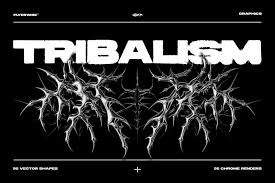By: Sulaiman Aruna Sesay
Tribalism is a major issue impacting societies across the world. In Sierra Leone, it has had a significant impact on the country’s development. Tribalism influences decision-making processes, leading to unequal distribution of resources and political power.  Relax as I analyse the effects of tribalism on Sierra Leone and the initiatives required to rectify the situation.
Relax as I analyse the effects of tribalism on Sierra Leone and the initiatives required to rectify the situation.
Tribalism refers to having strong allegiance and preference towards individuals, groups, or communities based on their ethnic identity. In Sierra Leone, tribalism is deeply ingrained, and people identify by their tribe before their national identity. The country comprises 18 ethnic groups with the Temne, Mende, and Limba being the largest. Due to tribalism, one ethnic group can gain more power and influence than others, leading to conflicts and unequal distribution of resources.
In Sierra Leone, tribalism has led to political instability, corruption, and violence. Political leaders use tribalism to gain support from their ethnic groups, leading to unequal distribution of resources, political appointments, and job opportunities. This has resulted in poverty, unemployment, and underdevelopment in some regions, while others prosper. Tribalism has also fuelled conflicts and violence, leading to human rights abuses, loss of lives and property.
In Sierra Leone, tribalism has led to political instability, corruption, and violence. Political leaders use tribalism to gain support from their ethnic groups, leading to unequal distribution of resources, political appointments, and job opportunities. This has resulted in poverty, unemployment, and underdevelopment in some regions, while others prosper. Tribalism has also fuelled conflicts and violence, leading to human rights abuses, loss of lives and property.
The impact of tribalism is clear in the political sphere. Political leaders often appoint persons from their ethnic groups to public offices, ranging from government positions to administrative positions. This has led to the exclusion of other ethnic groups from political representation, resulting in resentment and conflicts. Tribalism in Sierra Leone has also led to a lack of accountability and transparency in governance. People in power prioritize their ethnic tribe interests over the national interest, leading to corruption, misuse of public resources, and a lack of development.
The effect of tribalism extends to the economic sphere. It has resulted in the unequal distribution of resources, with some regions receiving more development projects and support than others. Tribalism has led to a lack of investment in some areas, resulting in underdevelopment, unemployment, and poverty. This further fuels tribalism as people feel neglected and excluded from national development.
Tribalism has undermined social cohesion in Sierra Leone. It has resulted in animosity, intolerance, and discrimination between ethnic groups. People self-segregate based on their tribes and are more likely to confer with members of their tribe. This further entrenches tribalism and divides the country.
To rectify the situation, there is a need for political will, social cohesion, and economic growth. The government should create policies that are inclusive and promote equal distribution of resources and opportunities to all citizens, irrespective of their ethnic background. The government should also empower institutions responsible for ensuring accountability, transparency, and the rule of law. This will foster social cohesion, reduce corruption, and promote peaceful coexistence. The state should promote national identity, discourage tribalism, and encourage diversity and inclusivity.
Tribalism has impacted Sierra Leone’s development by undermining accountability, transparency, and equality. It undermines the country’s potential for socio-economic growth. It is vital for all stakeholders, including the government and civil society, to come together to promote social cohesion, encourage inclusivity, and promote economic growth. There must be a deliberate effort to promote the country’s national identity and discourage tribalism because this will foster development and peaceful co-existence in Sierra Leone.











